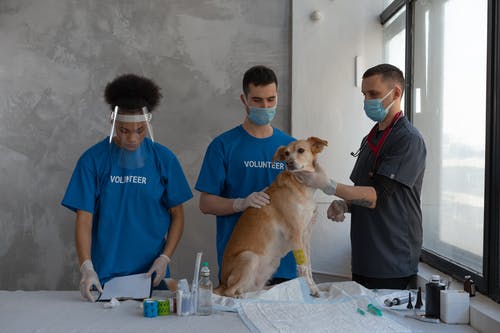Humans are at the beck and call of their cats and want them to get the best care. Cats can invade beds, sleep anywhere they desire, and make the entire house into their playground. Regarding healthcare, cats must be brought every year to the vet.
They must be looked at to prevent illness or get a diagnosis if there is an existing problem. Cats are great at hiding sickness or discomfort, so these veterinarian visits should not be forgotten.
Before the Vet Visit
Regarding yearly examinations, it might be tough for humans to bring the cat to the vet. Pet cats can smell your fear and get all feisty before a vet trip. Before you get nervous and avoid the idea, here are some tips to make veterinarian trips easier.
Prepare What You Need
Ensure you have whatever you need ahead of time. This will help in reducing your stress. You can call the veterinarian to ask for any requirements just to be sure. Be prepared and get things all set hours before your scheduled visit. Here are some of the important things you may need:
- Carrier or crate
- Previous health or vaccination records (if going to a new vet).
- Toys and treats.
- A list of concerns you may wish to go over with the veterinarian.
- Stool sample, if required.
Be Calm
Before a trip, some cats can be fearful, stressed out, or aggressive. Some cats hate being caged, so you might wish to make the crate or carrier as comfy as possible. Most importantly, avoid being anxious because your cat will know if you freak out. Be calm, and be ready with lots of treats and calming encouragement throughout the trip.
What to Expect During the Checkup
There are three main things you can expect throughout a cat checkup. Be confident and calm throughout the examination. Assist the vet and the nurses when necessary so your cat will be secure.
Head-to-tail Examination
The vet will examine your cat from head to toe. The veterinarian will listen to your cat’s heart and lungs and feel for abnormalities, such as lumps and bumps, all over. If you have concerns, you can inform your veterinarian of any observations you have.
The veterinarian will also look for fleas, damaged claws, and oral health. If you have any issues, you might notify your vet of any observations you have.
Lab Work
Your vet may request a series of laboratory tests. If this is your adult cat’s first veterinarian visit, these tests will be your cat’s regular health baseline. In the future, this will make it easier to find changes in your cat’s health. Such tests may be a blood count, a blood chemistry panel, and a fecal test. If there are findings, your cat may be referred to internal medicine.
Vaccination and Booster Shots
It is suggested that your cat get updated with its shots. Talk to your veterinarian to find out which shots are needed during the adult years. Keep your feline’s schedule to protect it from illness it can get from various places and other cats. For more information, why not seek help from vets like the reliable ones at Cumberland Animal Clinic? They can explain why vaccines are essential.
The Takeaway
Be prepared, be calm, and know what to anticipate. Knowing what goes on throughout the checkup will help you be prepared to support your cuddly buddy emotionally. Your trip home will be similarly peaceful and hassle-free if all goes well.




